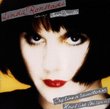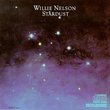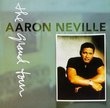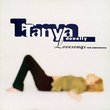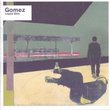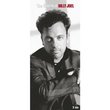| All Artists: Highwaymen Title: Road Goes on Forever (Bonus Dvd) Members Wishing: 2 Total Copies: 0 Label: Capitol Original Release Date: 1/1/2005 Re-Release Date: 11/8/2005 Album Type: Limited Edition, Original recording remastered Genres: Country, Pop Styles: Outlaw Country, Classic Country Number of Discs: 2 SwapaCD Credits: 2 UPC: 724347450600 |
Search - Highwaymen :: Road Goes on Forever (Bonus Dvd)
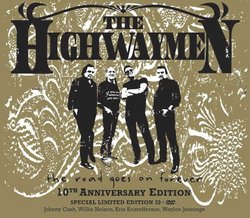 | Highwaymen Road Goes on Forever (Bonus Dvd) Genres: Country, Pop
Don Was, the producer who transformed Bonnie Raitt from cult hero to pop star, tried to jump-start the stalled careers of Willie Nelson and Waylon Jennings by producing their recent albums, Across the Borderline and Waymor... more » |
Larger Image |
CD DetailsSynopsis
Amazon.com Don Was, the producer who transformed Bonnie Raitt from cult hero to pop star, tried to jump-start the stalled careers of Willie Nelson and Waylon Jennings by producing their recent albums, Across the Borderline and Waymore's Blues (Part II), respectively. This resulted in two artistic triumphs but no hits. That didn't deter Nelson and Jennings from hiring Was to produce their album with Johnny Cash and Kris Kristofferson as the Highwaymen. The Road Goes on Forever is easily the best of the three Highwaymen albums, even if changing radio tastes will probably doom it to the poorest sales of the three. The two earlier releases, 1985's Highwaymen and 1990's Highwaymen 2, were thrown together as if the sheer star power of the four singers could carry the project. Both albums had their exciting moments when everything clicked but both also had a lot of filler. By contrast, Was approached the new recording as if every song and every arrangement had to be good enough to be a single. He picked one obscure but terrific composition from each of the four singers and supplemented them with equally strong material from four of Texas's best songwriters--Steve Earle, Billy Joe Shaver, Robert Earl Keen Jr., and Stephen Bruton. Nelson's harmonica ace Mickey Raphael and Kristofferson's singing buddy Billy Swan are joined by top L.A. session pros like keyboardist Benmont Tench and drummer Kenny Aronoff to create a sound that has the twangy picking of old-fashioned country and the fat bottom of modern pop. The result is an album with everything: first-rate material, grade-A playing, and inimitable singing. The thread that ties Nelson, Jennings, Cash, and Kristofferson together is the crustiness of their voices (a honey-voiced singer like George Jones or Don Gibson would seem out of place in this crowd); when they sing Shaver's "(I'm Going To) Live Forever," they sound as if they're more than halfway there. The Highwaymen are so naturally hard-bitten and world-weary that they can slip a little sentiment into a song without spoiling it. They use this to great advantage on the album's two great outlaw songs, Earle's "The Devil's Right Hand" and Keen's title tune; the gruff tales of violence lead up to a sobering admission of the price paid for such a life. That same gruffness allows the Highwaymen to sing two religious meditations, Jennings's "I Do Believe" and Cash's "Death and Hell," without once sounding sanctimonious. --Geoffrey HimesThis 10th anniversary limited edition includes a DVD containing the music video for "It Is What It Is" and a documentary, Live Forever: In the Studio with the Highwaymen. Similarly Requested CDs
|
CD ReviewsGreat bonus dvd, Stephen White | melbourne., victoria Australia | 03/19/2006 (5 out of 5 stars) "i had the cd already , but the dvd bonus is fantastic and well worth the purchase ,every highwayman fan should own it.........." The over-the-hill-gang stikes out. Martin Rayl | 10/28/2007 (3 out of 5 stars) "I had high hopes after reading the Amazon review, but I thought the disc was draggy and dull with the exception of KK's song. These guys should have listened to "The Traveling Wilburys" to get some hints on how to make magic TOGETHER."
|

 Track Listings (17) - Disc #1
Track Listings (17) - Disc #1
